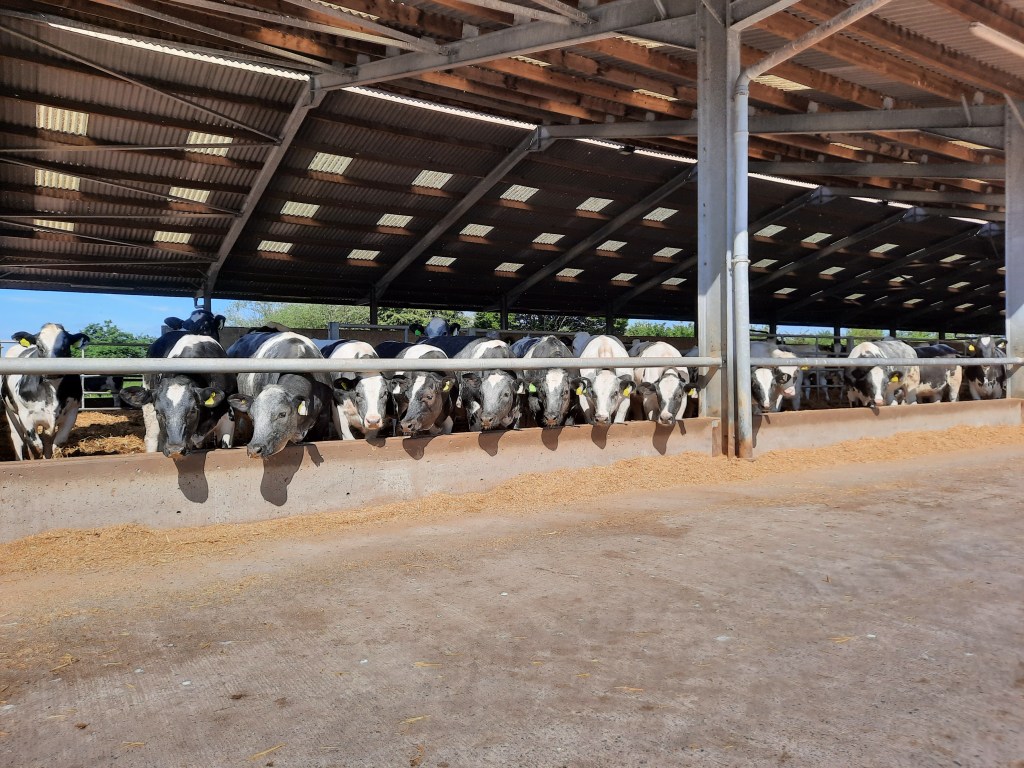Bovine genetics company, Genus ABS, has been awarded Climate Smart Funding by Innovate UK for their Climate Smart Beef Genetics Project, to aid the agriculture sector in meeting its net zero aims.
This project will see a large monetary award given to the genetics company to support their ground-breaking research.
Data collected so far has demonstrated the potential of ruminal microbiome-driven breeding, used to mitigate methane emissions.
The company aim to see a 17% reduction and a feed conversion ratio increase of up to 15% per generation, to reduce the impact of the UK’s beef supply chain on the climate crisis.
Scotland’s Rural College (SRUC) partnered with Genus ABS to support them on collecting data on their cattle, helping to determine that there is a positive genetic relationship between rumen microbes and methane output.
Prof Rainer Roehe, Professor of Animal Genetics and Microbiome at SRUC, explained: “Genus ABS and SRUC’s ground-breaking research in beef breeding of using the rumen microbiome composition for mitigation of the highly potent greenhouse gas methane by up to 17% generation and improvement of feed conversion efficiency, by up to 15% per generation, will be optimised and validate in the newly funded project using real world breeding.
“With each generation of selection, this new breeding method is expected to make cattle climate smarter and smarter, to achieve net-zero emissions in beef production.
“The project is based on a long-term collaboration of Genus ABS and SRUC and will ensure the best implementation of this highly promising, cost-effective breeding strategy referred to as microbiome-driven breeding.”
Genus ABS’ beef project provides targeted genetic solutions for their customers, which will help them to create more value for the beef supply chain, whilst also keeping carbon emissions low.
To achieve their high ambitions, Genus ABS will be working alongside SRUC, Meadow Quality and Myerscough College.
Set to operate over the next four years, they plan to test an additional 7,000 animals to identify those with the best feed efficiency and a reduced methane output, combined with improved growth and performance.
As part of their innovative research so far, Genus ABS has already established five beef testing units in the UK to facilitate their genetic testing and data collection, operated by their experts who will be responsible for coordinating trials, collecting information and sourcing cattle into the units.
Chief Operating Officer at Genus ABS, Jerry Thompson, said: “Climate smart genetics will provide a huge benefit to our Genus ABS customers.
“Firstly, it recognises the fact that the traits we’re selecting for, to drive genetic improvement, actually are directly aligned with improving the sustainability of the entire beef supply chain.
“So, firstly we work on the profitability of the dairy farm; semen fertility, calving ease, gestation length, and then we work on the growth, feed efficiency and carcase value across the whole beef supply chain.
“The fact that our animals grow faster than any others means that gives us the opportunity to reduce the overall carbon footprint for those beef supply chains.”
Genus ABS was established over 80 years ago and has made revolutionary steps in genetic progress ever since.
Their NuEra Genetics™ beef programme delivers genetic improvement and a reduced carbon footprint by selecting elite genetics for a balanced portfolio of traits, related to production efficiencies and outcome.
In recent years, their genetics team have collected a vast amount of data on beef cross dairy animals, such as; feed efficiency, water intake, daily liveweight gains and carcase traits to create progeny which have value for the whole beef supply chain.
Genetic progress has seen their NuEra Genetics™ animals reach harvest 100 days sooner than average, are 11% more feed efficient and offer a 12% reduction in methane per kilogram of red meat produced.
Learn more about the sustainable solutions offered by Genus ABS, and NuEra Genetics, over on their website.






